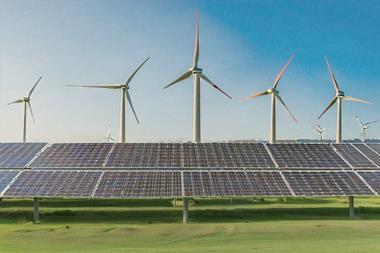Unlike their North American and Asia-Pacific counterparts, European institutional investors on average plan to decrease their weightings to real estate, having overshot their target allocations.
According to the latest annual investment intentions survey, conducted jointly by regional real estate investor associations INREV, ANREV and PREA, European investors hold 10.8% of their assets in real estate, just above their average target allocation of 10.5%.
Globally, investors are on average below their target allocations, with a 10.2% exposure to real estate versus an average target of 10.4%.
In contrast to European investors, Asia-Pacific institutions are substantially under-allocated to real estate, with an average exposure of 6.3%, two percentage points below their target of 8.3%.
US investors, which have the highest average exposure to real estate at 12%, are close to their target allocations of 12.7%, but maintain a 70bps cushion.
More than two thirds (37%) of European investors plan to decrease their allocations and only 16% plan to increase them.
The findings have implications for global capital markets, potentially predicting slower investment activity and capital raising among European investors versus their global peers.
The survey also found European investors to be retrenching to domestic markets and lower-risk core investments, while Asia-Pacific investors favoured opportunistic investments.
In its report, INREV said “The fact that [Asia-Pacific investors] are now more inclined towards higher-risk strategies could be interpreted as an opportunity to increase European real estate allocations at a discount. This is particularly timely, given the anticipated swift correction of European real estate.”
INREV said the denominator effect – where faster declines in listed markets pushes up investors’ allocations to less volatile private-markets investments – was mentioned by approximately 70% of respondents as one of the main issues impacting their real estate decisions for 2023.
The denominator effect has been impacting both European and North American investors. Last year, IPE Real Assets reported on a number of US pension funds seeking to sell out of real estate funds to bring their exposures down in line with their allocation targets, including Maine Public Employees Retirement System, San Diego City Employees’ Retirement System, and Ohio Bureau of Workers Compensation.
In a presentation to the press, Iryna Pylypchuk, director of research and market information, argued that a fast price correction in real estate markets could “erode” the denominator effect.
The INREV report also said the current drop in the investment sentiment was sharper than during the COVID-19 crisis for all investor domiciles, but for European and North American investors in particular.
The survey also revealed strong appetite for European real estate debt investments, with 62% of investors wanting to increase their exposure.
“The 2023 Investment Intentions Survey paints a clear picture of the difficult operating environment that investors are continuing to navigate,” said Pylypchuk.
“The higher-for-longer interest-rate environment almost demands revisiting and reinstating the case for non-listed real estate as an asset class.
“However, despite the muted short-term outlook, the income return, partial inflation hedge and long-hold qualities of the asset class will continue to support high level allocations for investors able to circumvent technical allocation breaches.”
Amélie Delaunay, ANREV’s director of research and professional standards, said: “The 2023 investment intentions survey is reflecting institutional investors’ reaction to the global economic and geopolitical turmoil.
“The denominator effect is affecting investors in their allocation, but it is reassuring to see that still 88% of them are expecting to deploy capital in 2023.
“Investors are also refocusing their investment on fewer geographies in the region, with China being excluded. ESG considerations, including environmentally and/or socially responsible investments and net-zero-carbon commitments, are now well-established considerations when investing in the Asia-Pacific region.”




















